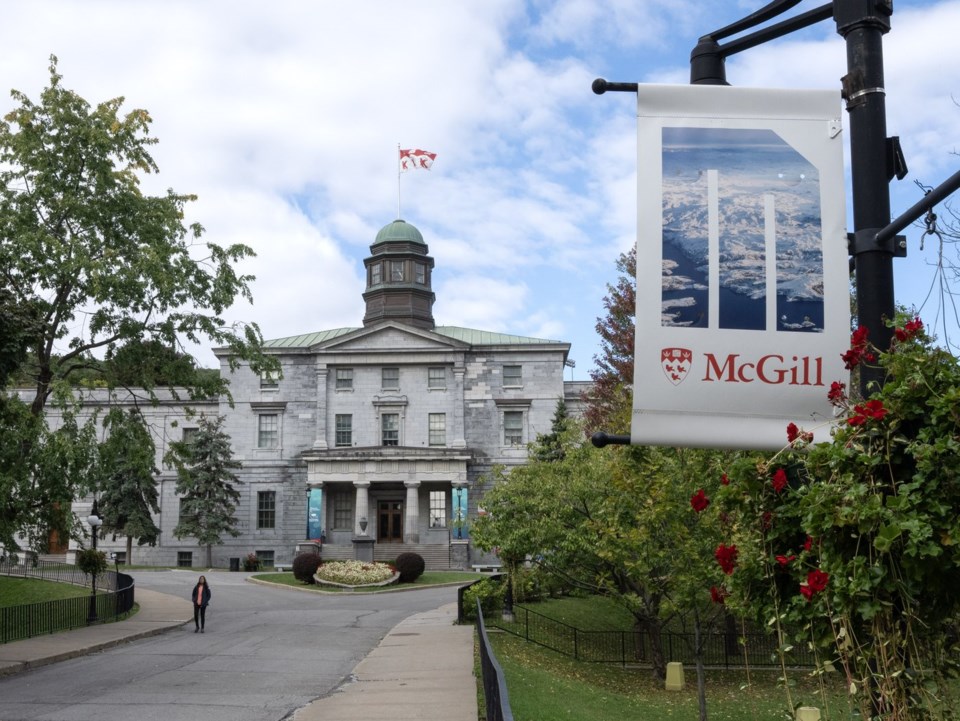OTTAWA — Canada's leading research universities warn that a proposed foreign influence transparency registry could have an unintended "chilling effect" on international partnerships, meaning Canada misses out on cutting-edge opportunities.
The U15 Canada universities are among several concerned voices urging MPs to adopt changes to the planned registry, a centrepiece of legislation being whisked through the House of Commons.
Members of a Commons committee completed a clause-by-clause review of the sweeping anti-foreign interference bill Monday after only a week of hearings. They agreed to a number of relatively minor changes.
The amended legislation is likely to return to the full House soon and will be voted on at third reading.
Even so, a Senate committee has already begun its study of the bill, hearing from several witnesses Monday.
The legislation would introduce new criminal provisions against deceptive or surreptitious acts, allow for the sharing of sensitive information with businesses and others beyond government, and establish a foreign influence transparency registry.
The bill recognizes that states and other foreign entities might engage in interference to advance political goals, and can employ people to act on their behalf without disclosing those ties.
The transparency registry would require certain individuals to register with the federal government to help guard against such activity.
Failing to register an arrangement or activity with a foreign principal — a power, state, entity or economic entity — could result in financial penalties or even criminal sanctions.
In a written brief to the Commons committee, U15 Canada expressed concern about the reporting requirements under the registry, given the extensive international networks of research co-operation.
"It is simply impossible for large research-intensive universities to track individual research collaborations across their institutions and report this on the registry" within the required 14 days, the submission said.
U15 Canada also called for greater clarity on how an arrangement will be defined and whether it would capture research partnerships, funding agreements or other international research activities conducted with publicly funded universities, research institutions or foreign research funding agencies.
"The risk of a chilling effect on international research partnerships as an unintended consequence of the registry’s reporting requirements could significantly harm relationships with international peers and mean that Canada misses out on the opportunity to co-operate on cutting-edge research and access world-leading expertise with peer nations."
The group would also like to know whether the publication or communication of research findings, including through peer-reviewed academic journals, teaching, conferences or other public forums, would be considered a communication activity for the purposes of the law.
Such a requirement could "significantly infringe" on academic freedom and "limit the pursuit of open science and free exchange of ideas," U15 Canada said.
Universities Canada, which represents 96 universities across the country, said in its submission to the Commons committee that the transparency registry could capture information relating to a political or governmental process "that is communicated or disseminated by any means, including social media."
"This can include research publications seeking to engage on issues such as foreign policy, governance processes, economics, climate and technologies subject to increased political debate," Universities Canada said.
Research publications already have transparency requirements built in, such as the disclosure of university affiliation and financial conflicts of interest, the organization noted.
"The requirement for further registration risks stifling Canadian research by creating duplicative administrative processes and may not consider other research security policies that universities have implemented in recent years."
In a policy brief submitted to the MPs, the Centre for International Governance Innovation noted the Canadian influence registry will be "country agnostic," meaning that it will not be targeted at known state adversaries such as China.
Canada is taking this route despite problems with that approach experienced by Australia, and despite an alternative and more recent model offered by the United Kingdom, said the brief written by security expert Wesley Wark, a senior fellow at CIGI.
Wark pointed out the U.K. version is a two-tier system. An enhanced tier gives the secretary of state the power to require registration of a broader range of activities for specified countries, parts of countries or foreign government-controlled entities when necessary.
Benjamin Fung, a professor and Canada research chair at McGill University, expressed support for a two-tier model like that in place in the U.K. in a brief to the Commons committee. Such an approach would allow the Canadian government to "impose more accurate restrictions to selected entities," Fung said.
MPs defeated a proposed amendment Monday from the NDP's Alistair MacGregor to include an enhanced tier in the registry scheme.
In its brief to the committee, the Canadian Civil Liberties Association said the section of the bill creating the influence registry "includes vague and broad language that raises democratic accountability issues."
The association is concerned about potential use of the registry as a tool for government to monitor the international engagement of various actors, including foreign broadcasters owned or funded by the state, academic institutions and charities.
"These considerations potentially involve freedom of the press and privacy issues, as well as questions as to the place reserved for international organizations in Canada's ecosystem," said the association said.
This report by The Canadian Press was first published June 10, 2024.
Jim Bronskill, The Canadian Press




